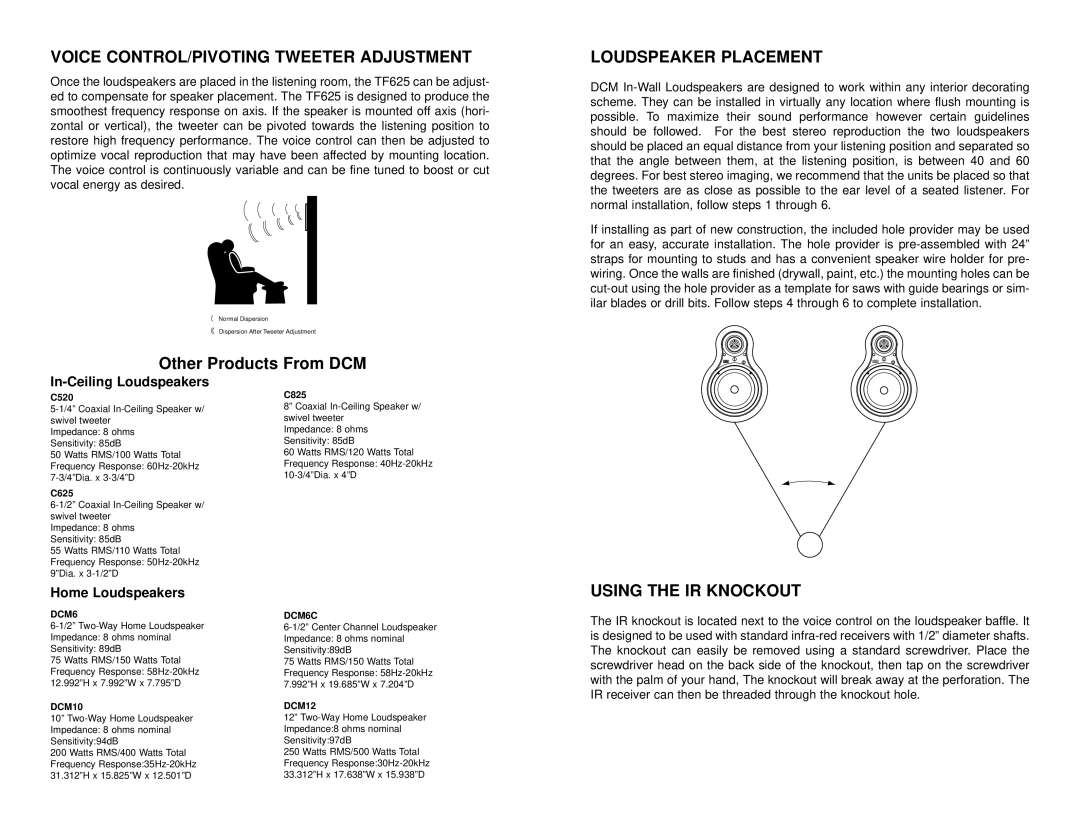
VOICE CONTROL/PIVOTING TWEETER ADJUSTMENT
Once the loudspeakers are placed in the listening room, the TF625 can be adjust- ed to compensate for speaker placement. The TF625 is designed to produce the smoothest frequency response on axis. If the speaker is mounted off axis (hori- zontal or vertical), the tweeter can be pivoted towards the listening position to restore high frequency performance. The voice control can then be adjusted to optimize vocal reproduction that may have been affected by mounting location. The voice control is continuously variable and can be fine tuned to boost or cut vocal energy as desired.
Normal Dispersion
Dispersion After Tweeter Adjustment
Other Products From DCM
LOUDSPEAKER PLACEMENT
DCM
If installing as part of new construction, the included hole provider may be used for an easy, accurate installation. The hole provider is
In-Ceiling Loudspeakers
C520
Impedance: 8 ohms
Sensitivity: 85dB
50 Watts RMS/100 Watts Total Frequency Response:
C625
Impedance: 8 ohms
Sensitivity: 85dB
55 Watts RMS/110 Watts Total Frequency Response:
C825
8” Coaxial
Impedance: 8 ohms
Sensitivity: 85dB
60 Watts RMS/120 Watts Total Frequency Response:
Home Loudspeakers
DCM6
75 Watts RMS/150 Watts Total Frequency Response:
DCM10
10”
200 Watts RMS/400 Watts Total Frequency
DCM6C
75 Watts RMS/150 Watts Total Frequency Response:
DCM12
12”
250 Watts RMS/500 Watts Total Frequency
USING THE IR KNOCKOUT
The IR knockout is located next to the voice control on the loudspeaker baffle. It is designed to be used with standard
